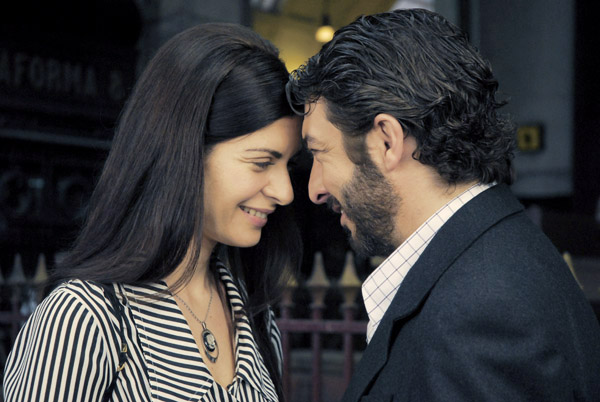|
Reviews of Recent Independent, Foreign, & Documentary Films in Theaters and DVD/Home Video

THE SECRET IN THEIR EYES Entertainment Weekly’s Dave Karger was right. If you listened to him, you probably won your office Oscar pool. He warned that the winner of best foreign-language film often comes out of left field, and this year the Argentinean nominee, a murder mystery, triumphed over the much more ambitious (and better) Ajami, A Prophet (Un Prophète), and The White Ribbon—downers, all. The first is a microcosm of ethnic conflicts in Israel, the second a violent and convoluted prison picture, and the last centered on a 1914 German hamlet infected by pint-sized evildoers. (The fifth nominee, The Milk of Sorrow from Peru, dealt with rape during wartime.) Maybe it shouldn’t be a surprise then that the more palatable, safer choice won. But is The Secret in Their Eyes good? Yes, in the same manner that the literate crime novels of Sue Grafton or Donna Leon rise above other airport paperbacks. In soft focus, a man in the train places his hand on the window pane; a woman runs by the side of the train, hand outstretched to touch her lover’s window. This opening sequence is just a flight of the imagination of now-retired court investigator Benjamin (Ricardo Darín, who has the saddest eyes of any actor anywhere), who’s trying his luck writing fiction. He takes his rough draft to his former boss, the well-connected Ivy League-educated Judge Irene Menéndez Hastings (padre is Scottish). She’s honest, to the point (as we’ll see in the flashbacks), and taking her advice, Benjamin writes what he knows, or what he really wants to know—answers to the lingering questions surrounding the rape and murder of a beautiful young newlywed 25 years earlier, during the lead-up to the military dictatorship. The film cuts back and forth between the decades-old investigation and Benjamin, grey haired and still single, rekindling his feelings for the regal Irene (Soledad Villamil), his one ally in the court system. The historical backdrop offers a veneer of a larger agenda, but the functional corruption-of-power theme simply serves the plot—the film is in no way like the social indictment of Stieg Larsson’s The Girl with the Dragon Tattoo. The opening lovers-parting scenario is later repeated, this time played straight when Benjamin departs from Buenos Aires for his own safety, leaving the-about-to-be-married Irene, with tears in her eyes, alone on the platform back in the ’70s. (And true to a specific formula, it doesn’t take a lot of hindsight to guess which hapless sad sack among the cast of characters will be a goner by the second half.) But just as the script embraces archetypes, it easily discards them as well. In the portrayal of Irene, the film creates the rare woman of power who remains perched on her pedestal, in command and respected by her male staff. She’s not punished for eyeing the young male legal clerk, and no one challenges her authority, even when she’s initially wrong about who committed the murder. And just when you might think the tempo recalls a TV procedural, Juan José Campanella (who has directed episodes of TV’s Law & Order Special Victims Unit) breaks free from the conventional cinematography with a bravura sequence, several takes seamlessly edited as one fluid camera movement lasting for five minutes. From an aerial shot hovering over a roaring soccer stadium, the camera plunges down into the spectator section, where Benjamin and his alcoholic sidekick search for the murder suspect among thousands. Then the handheld camera follows the detectives through the aisles and into the men’s room, with one scared, sweating suspect in pursuit. Technically, it rivals Atonement’s Dunkirk segment, and somewhere Scorsese is crying. Though well
acted and efficiently told, Secret, as a mystery, sorely lacks an
ah-ha moment; it could have used an extra twist or two. In other words,
you won’t kick yourself for overlooking a clue. What will be more
memorable is the melancholic regret of the older Benjamin and Irene. It
lingers, the mystery doesn’t. Kent Turner
|

